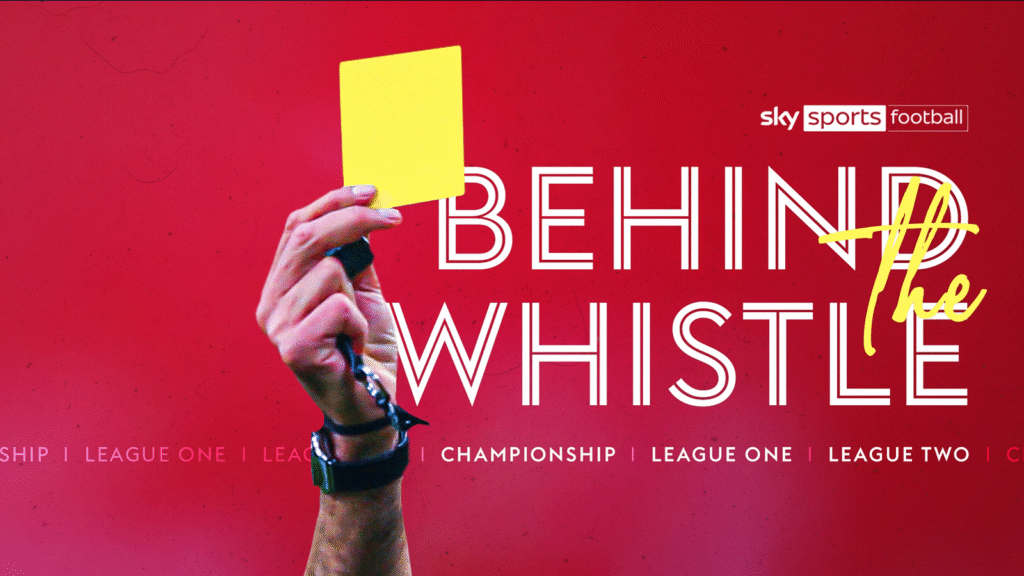In Behind the Whistle, former Premier League referee Chris Foy goes through a selection of key match decisions from the latest action across the EFL..
Behind the Whistle aims to give supporters of EFL clubs an insight into the decision-making considerations and also clarification of certain calls to provide an understanding of how the laws of the game are interpreted.
As part of a regular feature on Sky Sports following the conclusion of a matchday, Foy will be here to run you through some refereeing matters in the EFL…
Norwich City 4-2 Cardiff City
Incident – Possible red card, DOGSO (Norwich City)
Decision – Red card, DOGSO (Norwich City)
Foy says: “The referee makes two critical decisions in this situation and gets both spot on. First, determining whether an offence has occurred; second, assessing whether the offence constitutes the denial of an obvious goalscoring opportunity (DOGSO).
“There is no doubt that the Cardiff City defender commits a foul as he puts both hands on Norwich forward Josh Sargent and deliberately prevents him from making any further progress, therefore satisfying the criteria for an offence.
“The referee must then evaluate the key DOGSO considerations: distance to goal, general direction of play, likelihood of controlling the ball and the number of defenders.
“Given that the attacker is advancing centrally towards the goal, with a clear path and close proximity to the penalty area, the referee correctly concludes that the Cardiff City defender has denied an obvious goalscoring opportunity and issues a straight red card.”
Watford 1-1 Sheffield Wednesday
Incident – Goal scored, potential offside (Sheffield Wednesday)
Decision – Goal awarded (Sheffield Wednesday)
Foy says: “This is good work from the assistant referee here, as he correctly judges two phases of the attacking set piece.
“Firstly, when the defending team employs a high line from a set piece, it can create challenges for the assistant referee due to lots of movement and the possible offside attacking players.
“Despite these challenges, the assistant referee correctly identifies that the Sheffield Wednesday’s Callum Paterson started his run from deep before heading the ball across goal, creating a second offside judgement.
“The replay shows that both offside situations are correctly judged, and the goal correctly stands.”
Charlton Athletic 3-1 Burton Albion
Incident – Possible penalty and possible red card (Burton Albion)
Decision – Penalty awarded, caution (Burton Albion)
Foy says: “Once the attacking player takes the ball past the goalkeeper and goes down, the referee has to decide whether or not it is a foul, whether it is inside the penalty area and whether or not it is a DOGSO.
“Firstly, the decision to award a penalty kick is absolutely correct. The Burton Albion forward is fouled by the goalkeeper as he goes around him, with clear contact on the feet to prevent attacking progress.
“Even though the foul by the goalkeeper is DOGSO, it is clearly an attempt to play the ball and because this happened within the penalty area and the goalscoring opportunity is restored from spot, he is correctly sanctioned with a yellow card rather than red”.
Northampton Town 1-1 Wigan Athletic
Incident – Possible red card, serious foul play (Wigan Athletic)
Decision – Red card awarded (Wigan Athletic)
Foy says: “Although I do sympathise with the Wigan Athletic attacker here, the decision to show him a red card is absolutely the correct one.
“He believes he can win the ball and therefore challenges the keeper with a high foot, catching him, with force, in the follow through.
“Despite the motivation being to win the ball, it endangers the safety of the opponent and meets the threshold of serious foul play. Therefore, a red card is the correct outcome.”









